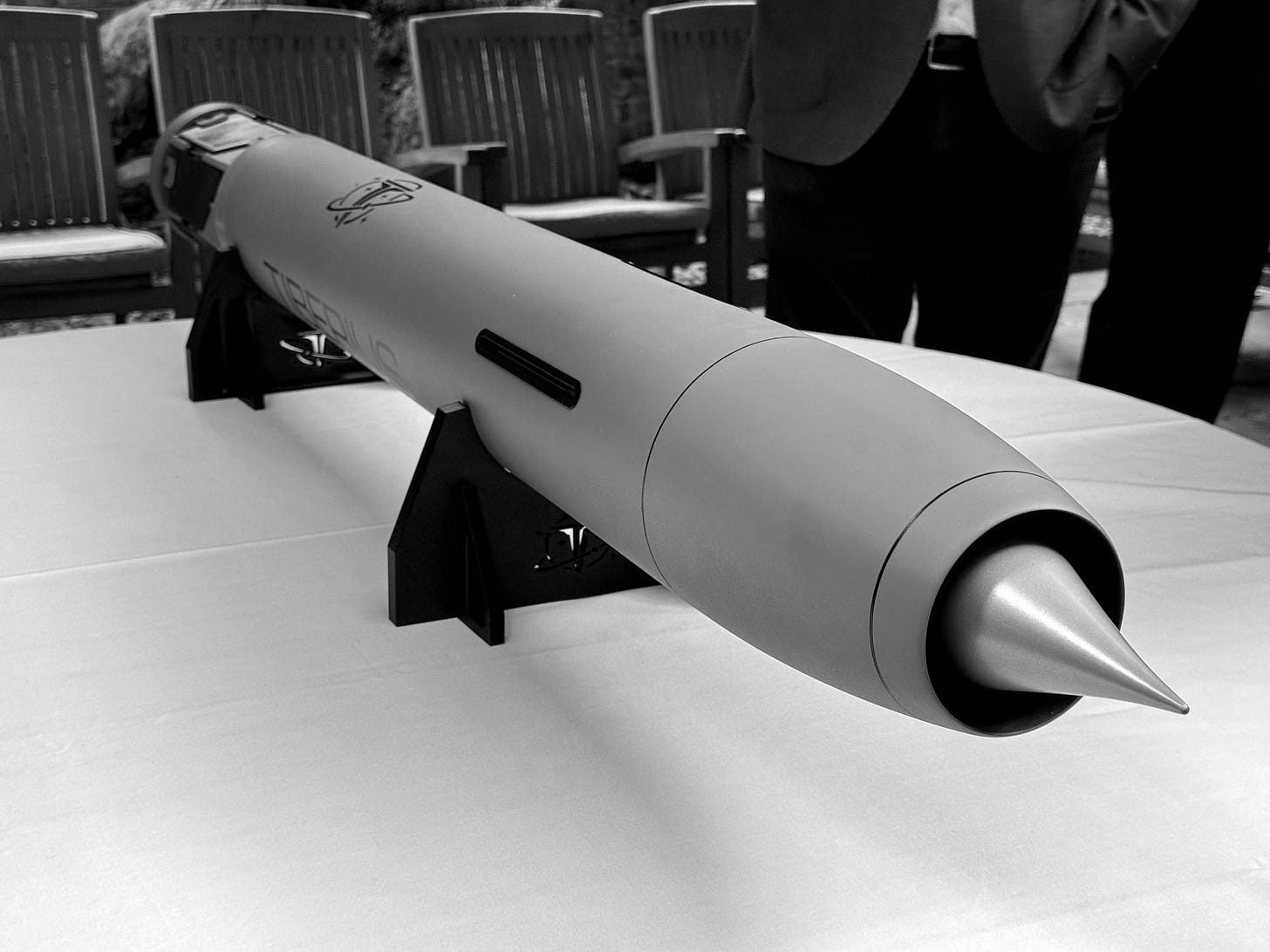From Tiberius and Themistocles to European Digital Sovereignty
Issue 24: A guest post on defence innovation in Ancient Greece; the launch of Tiberius Aerospace; and our first co-publication with European Resilience Newsletter, by Project A
Good afternoon from the team at Resilience Media
We attended the launch of the Tiberius Aerospace Sceptre and had a chance to speak with founder and CEO, Chad Steelberg. A serial founder from Silicon Valley with multiple exits, Steelberg pivoted into defence after taking in Ukrainian refugees following the full-scale invasion in 2022. Asking himself ‘what can I do,’ he stepped down from running his previous company and began designing what would become Sceptre, a seriously kinetic technology. We highlight these stories to remind people of the humanity behind the defence tech sector, and of Ukrainian founders and friends of Ukraine, who are building technologies to support them and defend democracy.
Today we’re publishing a piece by the European Resilience Newsletter team at Project A Ventures: Europe's Digital Sovereignty - Navigating the Path to Digital Sovereignty. We’ve long admired Jack Wang and Project A’s work supporting the ecosystem, so we’re pleased to co-publish this series with them. You can read more below. If you also have a guest post idea, please send it to me.
In a brilliant guest piece by Stavros Messinis, we go all the way back to Ancient Greece and Themistocles to examine how military doctrine needs to align with technological innovation. More below in our Industry Essay section.
Elsewhere on Resilience Media this week:
Latitude 59 kicks off tomorrow in Tallinn. We’ll be on the ground and look forward to meeting you there. Get in touch to meet up.
-Leslie, co-founder, Resilience Media
European digital sovereignty initiatives gained their first significant momentum in early 2021, with multiple member states calling for accelerated action to strengthen the continent’s digital sovereignty. Since then, we’ve seen meaningful developments across the continent: the landscape of European cloud infrastructure has evolved significantly and what was once primarily a regulatory concern has developed into a strategic priority with substantial implications for the investment community.
The European Commission has advanced its digital sovereignty framework and the European Investment Bank has broadened its focus to include critical digital infrastructure projects, encouraging European investors to increase their allocation to cloud technology companies with sovereignty-focused approaches. Read the full piece here.
The Launch at Resilience Conference startup showcase returns in 2025 and applications are now open! This isn’t a pitch competition. It’s a chance for early-stage startups to take the spotlight, share their vision, and demo frontier technology to the most influential investors, operators, and government leaders in defence and security.
Apply now to be part of the defining moment at Resilience Conference 2025: resilienceconference.io/launch
Throughout history, military doctrine has always lagged behind technology. Innovation is mostly a solo sport that’s driven by individuals, breakthroughs, and accidents, but doctrine demands consensus.
As the threat of Persian invasion loomed over ancient Athens, a fortuitous discovery of silver in the hills of Laurion in southern Attica gave Athens a choice: enrich the elite or invest in security. It took the strategic vision (and political cunning) of Themistocles to persuade the elites of the Polis to build a fleet of triremes instead of divvying up the wealth. That decision, marshalling resources to defeat a seemingly unbeatable foe, spurred on a doctrinal shift: from the land based hoplite to toward naval power. Read more here.
EDTH, the European Defense Tech Hub, is on a roll, with so many hackathons that you wouldn’t be blamed if you lost track. But that would be a shame, as they are becoming more interesting and impactful as the team scales across Europe.
One reason is that the team behind EDTH is increasingly embracing that the letter H stands for “hub,” not “hackathon.” This means working not only towards bringing talent into the defence pipeline, but also helping these projects become startups that can successfully navigate procurement to bring their innovations where they are most sorely needed. The full piece is here.
Europe
Beyond Operation Doppelganger: A Capability Assessment of the Social Design Agency
Germany aims to have Europe’s ‘strongest conventional army’
National Security
Refute: Romanian expats targeted by inauthentic TikTok videos ahead of Sunday’s Romanian Election
Investing
Building drones — for the children?








